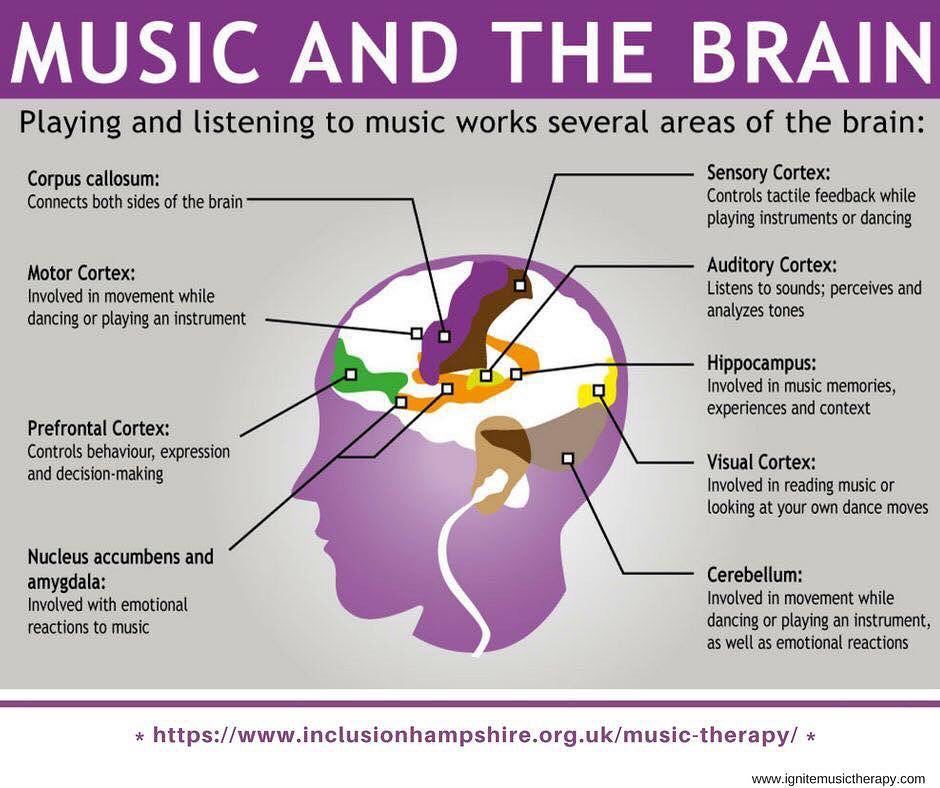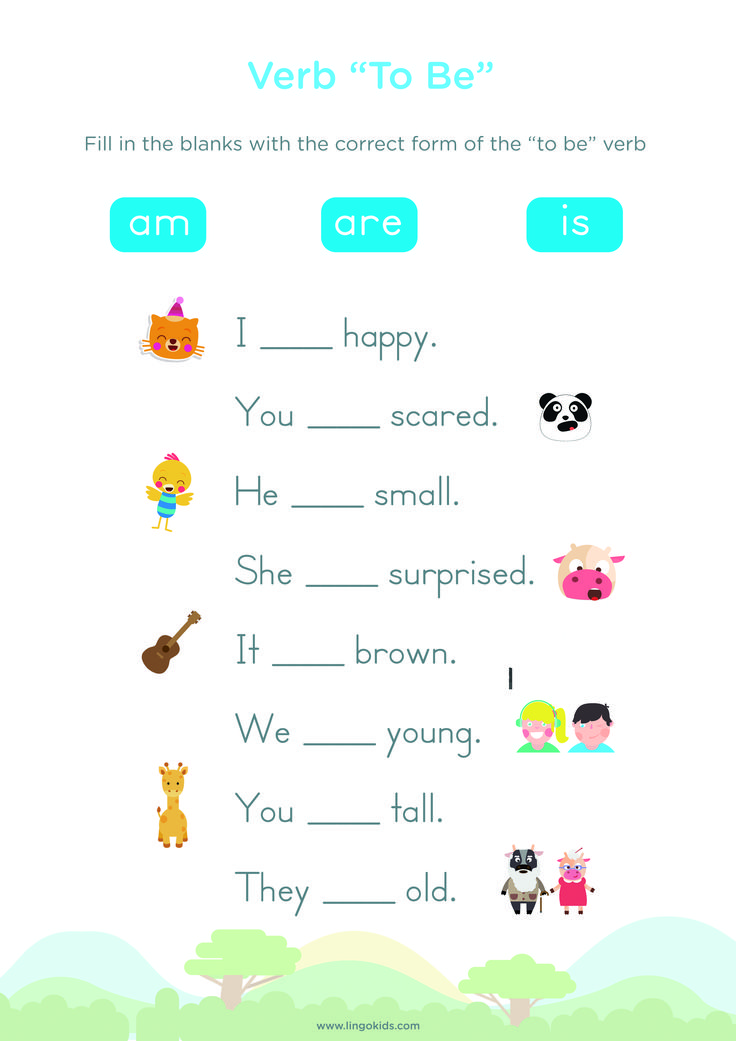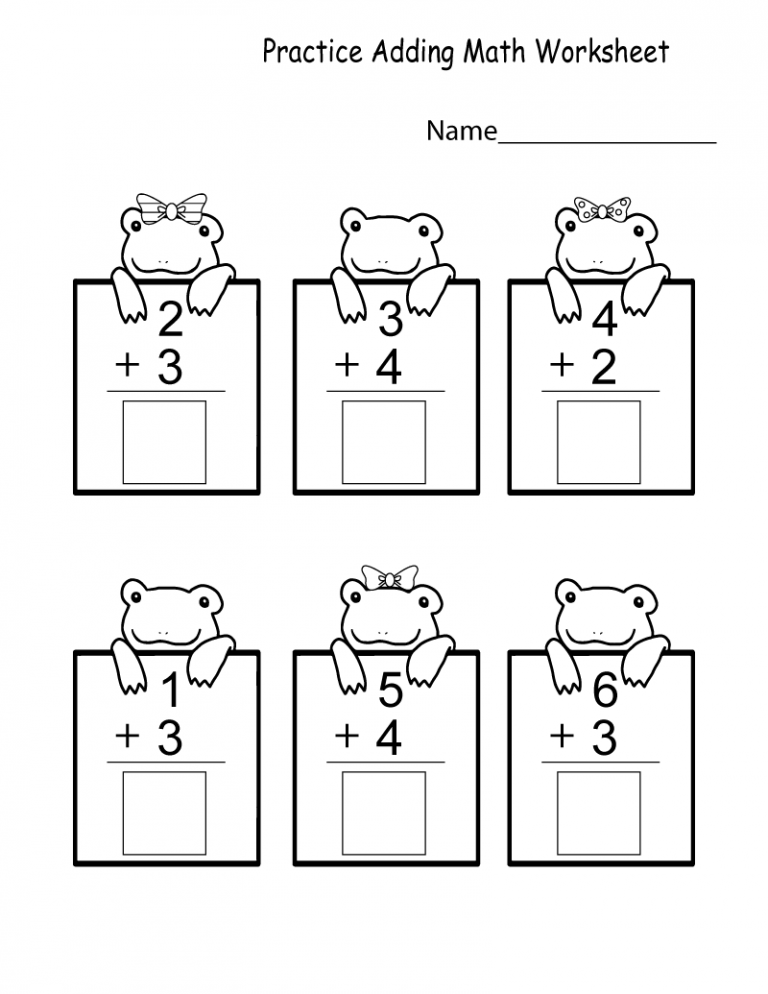Reasons for listening to music
Keep Your Brain Young with Music
If you want to firm up your body, head to the gym. If you want to exercise your brain, listen to music.
There are few things that stimulate the brain the way music does. If you want to keep your brain engaged throughout the aging process, listening to or playing music is a great tool. It provides a total brain workout.
Research has shown that listening to music can reduce anxiety, blood pressure, and pain as well as improve sleep quality, mood, mental alertness, and memory.
The Brain-Music Connection
Experts are trying to understand how our brains can hear and play music. A stereo system puts out vibrations that travel through the air and somehow get inside the ear canal. These vibrations tickle the eardrum and are transmitted into an electrical signal that travels through the auditory nerve to the brain stem, where it is reassembled into something we perceive as music.
Johns Hopkins researchers have had dozens of jazz performers and rappers improvise music while lying down inside an fMRI (functional magnetic resonance imaging) machine to watch and see which areas of their brains light up.
Music is structural, mathematical and architectural. It’s based on relationships between one note and the next. You may not be aware of it, but your brain has to do a lot of computing to make sense of it.
Try It Learn an Instrument
When 13 older adults took piano lessons, their attention, memory and problem-solving abilities improved, along with their moods and quality of life. You don’t have to become a pro, just take a few lessons.
Everyday Brain Boosts from Music
The power of music isn’t limited to interesting research. Try these methods of bringing more music—and brain benefits—into your life.
Jump-start your creativity.
Listen to what your kids or grandkids listen to, experts suggest.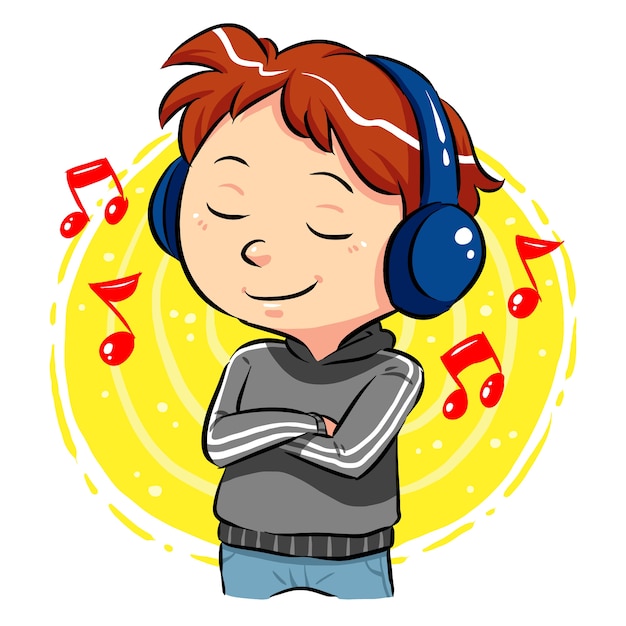 Often we continue to listen to the same songs and genre of music that we did during our teens and 20s, and we generally avoid hearing anything that’s not from that era.
Often we continue to listen to the same songs and genre of music that we did during our teens and 20s, and we generally avoid hearing anything that’s not from that era.
New music challenges the brain in a way that old music doesn’t. It might not feel pleasurable at first, but that unfamiliarity forces the brain to struggle to understand the new sound.
Recall a memory from long ago.Reach for familiar music, especially if it stems from the same time period that you are trying to recall. Listening to the Beatles might bring you back to the first moment you laid eyes on your spouse, for instance.
Listen to your body.
Pay attention to how you react to different forms of music, and pick the kind that works for you. What helps one person concentrate might be distracting to someone else, and what helps one person unwind might make another person jumpy.
Definitions
Magnetic resonance imaging (MRI): A large machine that uses powerful magnets and radio waves to see inside your body. Unlike an X-ray, MRI testing does not use radiation. If you undergo this test, you’ll lie on a narrow table that slides inside a tunnel-shaped scanner for about 30 to 60 minutes while health-care professionals watch from another room. If you feel anxious in small, enclosed spaces, ask your physician about an open MRI that is not as close to the body.
Unlike an X-ray, MRI testing does not use radiation. If you undergo this test, you’ll lie on a narrow table that slides inside a tunnel-shaped scanner for about 30 to 60 minutes while health-care professionals watch from another room. If you feel anxious in small, enclosed spaces, ask your physician about an open MRI that is not as close to the body.
5 Reasons Why We Listen to Music
Music is one of the most enjoyable human experiences. Music is an ever-present companion to people’s everyday lives. Music can alter our mood, emotions, motivation, and movement. We listen to music and experience emotions in the absence of any events causing us to feel joy, sadness, or excitement. Over the past several decades, scholars have proposed several purposes that listening to music might fulfill (Schäfer, 2016). Music provides a positive mood, offers a valued companion, and allows us to express emotions.
1. Musical pleasure
The key reason people listen to music lies in the reward center of the brain. Listening to pleasurable music activates areas of the reward system. The same brain-chemical system that enables feelings of pleasure from sex, recreational drugs, and food is also critical to experiencing musical pleasure. Musical pleasure arises when a pattern is interrupted in some way. Listeners experience strong emotions when something unexpected happens. However, not everyone experiences intense emotional responses to music. Roughly 2 percent of the general population do not experience chills. This incapacity to derive pleasure specifically from music has been called musical anhedonia (sometimes called tone-deafness).
Listening to pleasurable music activates areas of the reward system. The same brain-chemical system that enables feelings of pleasure from sex, recreational drugs, and food is also critical to experiencing musical pleasure. Musical pleasure arises when a pattern is interrupted in some way. Listeners experience strong emotions when something unexpected happens. However, not everyone experiences intense emotional responses to music. Roughly 2 percent of the general population do not experience chills. This incapacity to derive pleasure specifically from music has been called musical anhedonia (sometimes called tone-deafness).
2. Mood regulation
Music provides a means of escape. Music distracts our minds from the outside world. The use of music as background entertainment serves to get us into a positive mood or to become more alert. Music can relax the body because brain waves are able to synchronize with the rhythm of a song. People’s moods can reflect what they choose to listen to.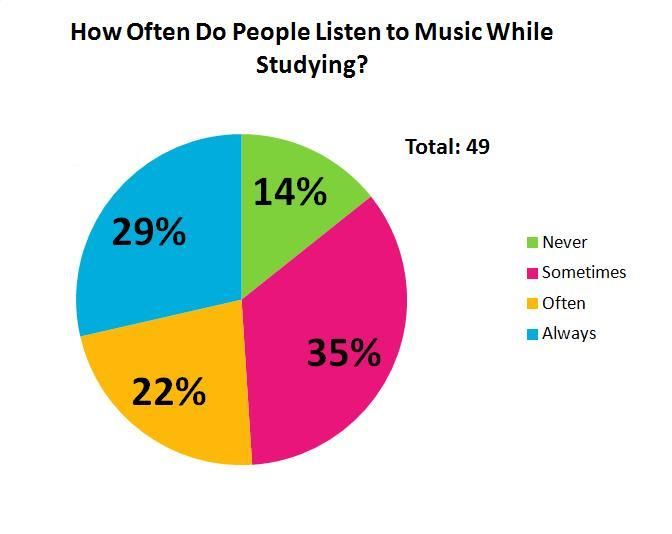 Fast or energetic music may make people feel alert and pumped, while slow music calms them down. For example, the music is fastest and loudest at lunchtime and then begins its slow descent into the early evening.
Fast or energetic music may make people feel alert and pumped, while slow music calms them down. For example, the music is fastest and loudest at lunchtime and then begins its slow descent into the early evening.
3. Nostalgia
Music is one of the strongest means for evoking feelings of nostalgia. Listening to music that was played a lot during a significant life event (e.g., a family celebration) many years ago can trigger a deeply nostalgic emotional experience. The feeling is not the music, but in what it reminds us. Maybe we have just come to hear a particular song as sad because we have learned to associate it with an experience of loss.
4. Aesthetic pleasure
Music listening is also explained by the aesthetic impact of music: enjoyment, being moved or inspiring. Subjectivity is central to aesthetic responses. A piece of music that is aesthetically appealing to one person can be repulsive to another. These differences come from personal experience and the attitude toward the music, and the current mood.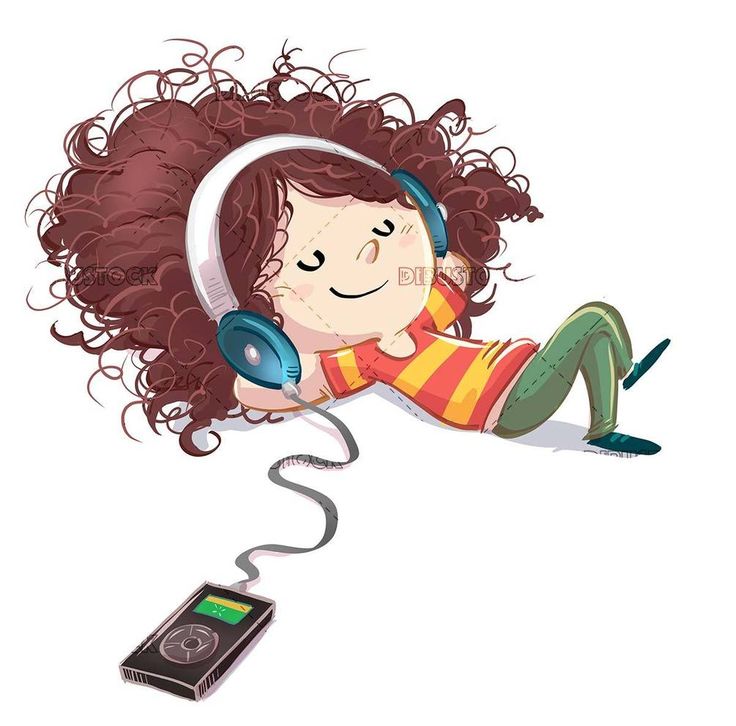 The aesthetic experience also involves the context, such as the external physical environment surrounding the individual during a musical activity. For example, listening experience changes depending on whether it is consumed alone or with peers, in a concert hall, or at home.
The aesthetic experience also involves the context, such as the external physical environment surrounding the individual during a musical activity. For example, listening experience changes depending on whether it is consumed alone or with peers, in a concert hall, or at home.
5. Identity motive
People can use music to express their identity and values to others. Music helps us to show that we belong to a given social group. Music is part of who we are. For example, listening to innovative music can serve to communicate the belief that one is creative and unconventional.
Why you should listen to music: 10 science-based reasons
Why you should listen to music: 10 science-based reasonsIf you are a music lover, you probably know that music can help calm your nerves, relieve stress, increase enthusiasm during a workout, and also bring back old memories. Well, we will name 10 scientifically based reasons why it is useful to listen to music.
Listening to music has many benefits, both obvious and hidden. It engages the emotional and intellectual centers of the brain and has an almost incredible power to bring people together.
It engages the emotional and intellectual centers of the brain and has an almost incredible power to bring people together.
Great Epoch (The Epoch Times) - tse independent international vision without a splash of any political or economic structures. Sob pratsyuvati far, we need your support.
When we listen to music, there is much more going on in the body than just auditory processing of sounds, reports B right V ibes . Research shows that music can help manage pain and promote physical and mental health.
1. Music develops children's social and emotional skills . Babies respond to the sound of voices, and many toddlers who can't really walk yet begin to "dance" as soon as they hear music. Music also influences the intellectual, social and personal development of children and youth.
2. Music reduces stress and strengthens the immune system . Music reduces levels of cortisol, the stress hormone, and increases antibodies that boost the immune system. Scientists have found that after 50 minutes of listening to fun dance music, the level of antibodies in the human body rises.
Scientists have found that after 50 minutes of listening to fun dance music, the level of antibodies in the human body rises.
3. The sound of music can relieve pain . Research shows that music reduces the perceived intensity of pain, especially in geriatric and intensive care patients.
4. Music is great for training - it motivates and increases endurance, and also helps you recover faster.
5. Listening to music makes us happier. If we enjoy music for 15 minutes, the brain will start producing dopamine, which causes a state of satisfaction.
6. Music helps strengthen memory. Music helps to remember information, especially if it is presented as a song or associated with some kind of melody. The part of the brain that processes music is located next to the areas that are responsible for memory, so music can stimulate the memory process.
7. Music relaxes patients before and after surgery. Listening to relaxing music before surgery reduces anxiety, and after it reduces pain and helps you recover faster. The researchers found that even patients under general anesthesia had better pain tolerance when listening to music.
Listening to relaxing music before surgery reduces anxiety, and after it reduces pain and helps you recover faster. The researchers found that even patients under general anesthesia had better pain tolerance when listening to music.
8. Listening to music improves the functioning of brain regions that are responsible for reading, literacy, reasoning and math skills. The study assessed the impact of music on the completion of a curriculum designed to improve the writing skills of 25 children aged 4 to 5 years. The results showed that listening to music significantly increased their abilities.
9. Music lowers blood pressure. Music affects the part of the nervous system that controls blood pressure, heart rate and brain function. Depending on the tempo of the music, the heartbeat and breathing may slow down or speed up. Researchers at the University of Arizona measured blood pressure and pain levels in 100 intensive care patients and found that certain types of music were effective in reducing blood pressure and pain relief.
10. Music helps you fall asleep. Listening to music affects the parasympathetic nervous system, which is responsible for relaxing the body and preparing for sleep. Choosing the type of music is a personal preference and you will most likely be able to relax while listening to your favorite music. But remember: slow melodies with a rhythm of 60 to 80 beats per minute help you fall asleep best.
Read more:
Shen Yun's concert made a deep impression on world celebrities
Hear the music of plants : Green Note device is created
Why is it useful to listen to new music ?
Mozart effect
Traditional Chinese music and its positive impact on a person
Why listen to music: 10 science-based reasons
If you are a music lover, you probably know that music helps to calm your nerves and relieve stress , add excitement during your workout, and bring back old memories.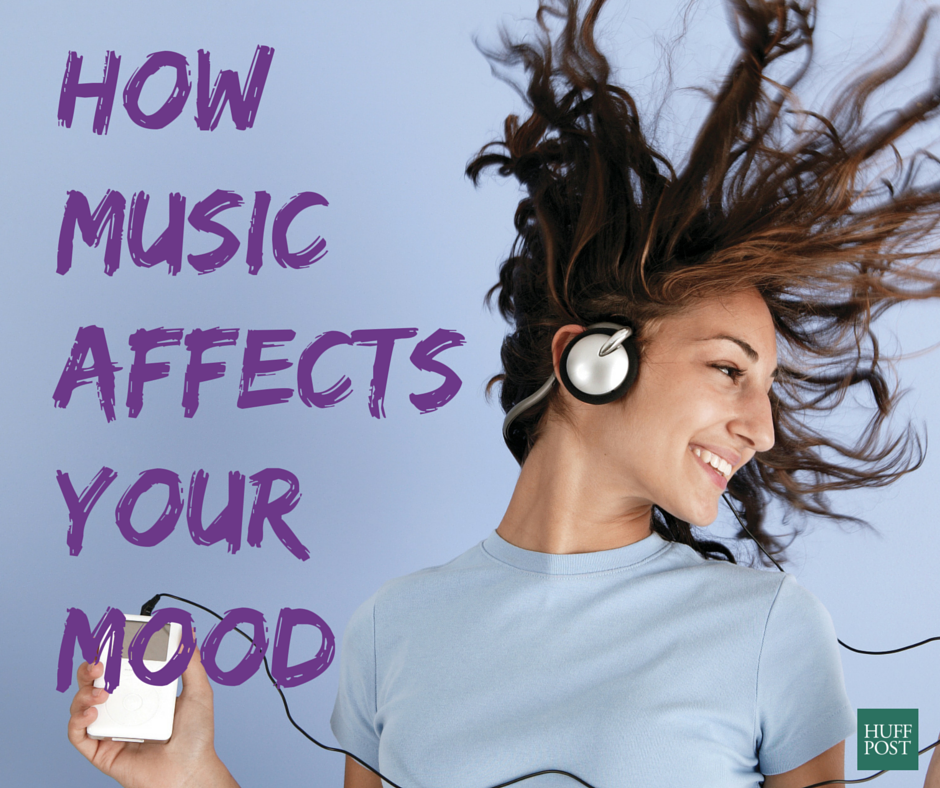 Well, we will name 10 scientifically based reasons why it is useful to listen to music.
Well, we will name 10 scientifically based reasons why it is useful to listen to music.
Listening to music has many benefits, both obvious and hidden. It engages the emotional and intellectual centers of the brain and has an almost incredible power to bring people together.
When we listen to music, there is much more going on in the body than just auditory processing of sounds, reports BrightVibes. Research shows that music can help manage pain and promote physical and mental health.
1. Music develops children's social and emotional skills . Babies respond to the sound of voices, and many toddlers who can't really walk yet begin to "dance" as soon as they hear music. Music also influences the intellectual, social and personal development of children and youth.
2. Music reduces stress and strengthens the immune system . Music reduces levels of cortisol, the stress hormone, and increases antibodies that boost the immune system. Scientists have found that after 50 minutes of listening to fun dance music, the level of antibodies in the human body rises.
Scientists have found that after 50 minutes of listening to fun dance music, the level of antibodies in the human body rises.
3. The sound of music can relieve pain . Research shows that music reduces the perceived intensity of pain, especially in geriatric and intensive care patients.
4. Music is great for training - it motivates and increases endurance, and also helps to recover faster.
5. Listening to music makes us happier. If we enjoy music for 15 minutes, the brain will start producing dopamine, which causes a state of satisfaction.
6. Music helps strengthen memory. Music helps to remember information, especially if it is presented in the form of a song or associated with some kind of melody. The part of the brain that processes music is located next to the areas that are responsible for memory, so music can stimulate the memory process.
7. Music relaxes patients before and after surgery.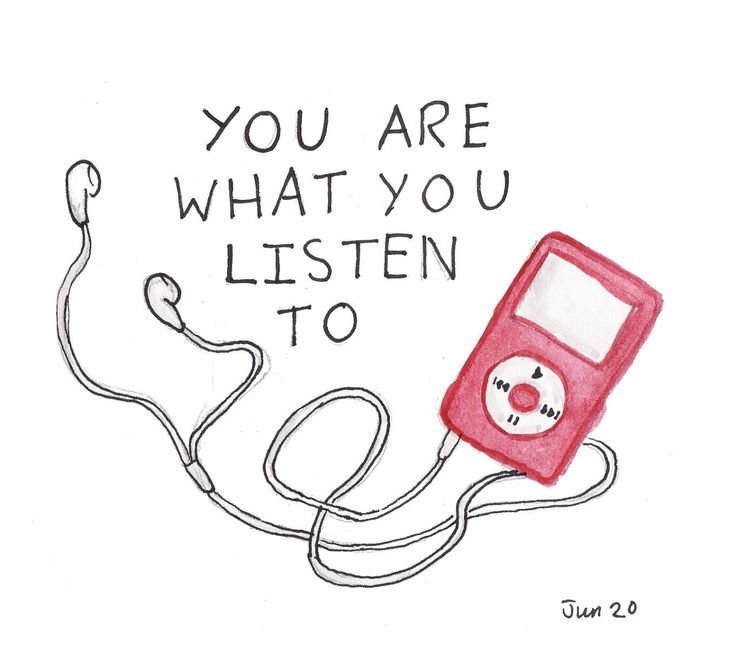 Listening to relaxing music before surgery reduces anxiety, and after it reduces pain and helps you recover faster. The researchers found that even patients under general anesthesia had better pain tolerance when listening to music.
Listening to relaxing music before surgery reduces anxiety, and after it reduces pain and helps you recover faster. The researchers found that even patients under general anesthesia had better pain tolerance when listening to music.
8. Listening to music improves the functioning of brain regions that are responsible for reading, literacy, reasoning and math skills. The study assessed the impact of music on the completion of a curriculum designed to improve the writing skills of 25 children aged 4 to 5 years. The results showed that listening to music significantly increased their abilities.
9. Music lowers blood pressure. Music affects the part of the nervous system that controls blood pressure, heart rate and brain function. Depending on the tempo of the music, the heartbeat and breathing may slow down or speed up. Researchers at the University of Arizona measured blood pressure and pain levels in 100 intensive care patients and found that certain types of music were effective in reducing pressure and pain relief.